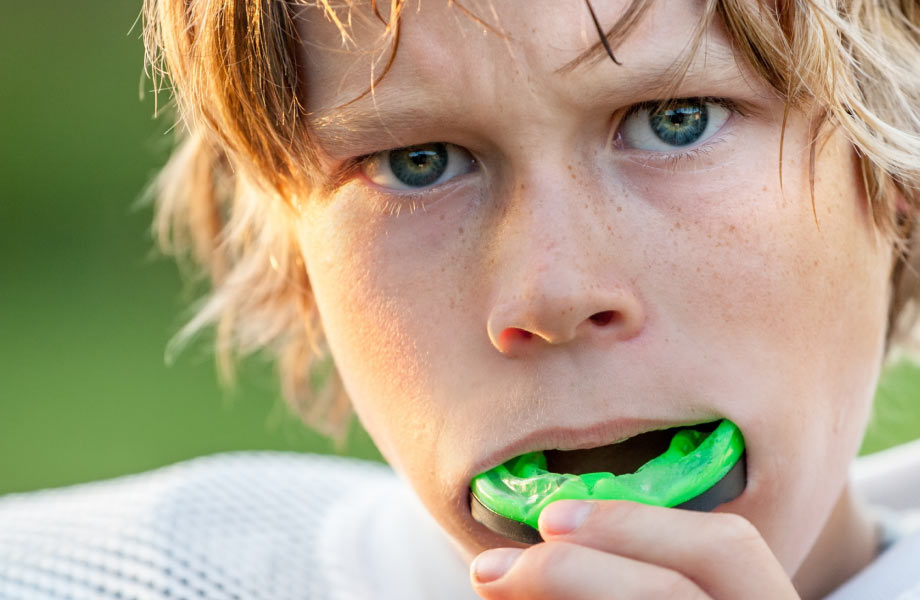
If you play a contact sport or grind your teeth at night, you might want to consider wearing a mouthguard or nightguard. Here, we’ll explain how these appliances can protect your teeth.
Types of Mouthguards and Nightguards
Mouthguards and nightguards are coverings worn over your teeth to protect them from injury or teeth grinding. Most mouth protectors are worn just on the top teeth, but in some cases, your dentist may recommend a guard for your bottom teeth as well. Mouthguards and nightguards should be comfortable, durable, tear resistant, easy to clean, and shouldn’t inhibit your speech or breathing.
There are two types of mouthguards that dentists recommend. The first is called a boil and bite mouth protector that can be bought at sporting goods stores. You place the thermoplastic mouthguard in hot water to soften it and then place it in your mouth to shape it around your top teeth so it fits snuggly. The second is a custom fitted mouth protector which is designed specifically for you. Your dentist will make an impression of your teeth to create the mouth guard in-office or send it to a laboratory to be made. These nightguards and mouthguards provide the most protection and comfort.
There is also another type of mouthguard called a stock mouth protector, that is readily available to wear. They are inexpensive and are found at most sporting goods stores. Stock mouth protectors are often bulky and make breathing and talking difficult. Dentists do not recommend these because you can’t do much to adjust their fit and they don’t provide enough protection.
The Purpose of Mouthguards and Nightguards
Mouthguards are used for anyone who plays a contact sport such as football, hockey, lacrosse, basketball, soccer, and boxing. They can even be used for noncontact sports or recreational activities, such as mountain biking or skateboarding, that could result in a mouth injury. Nightguards are for those who grind their teeth at night. If your nighttime teeth grinding is really an issue, your dentist might also recommend a nocturnal bite plate or bite splint which helps prevent tooth damage.
Both mouthguards and nightguards act as a barrier between your teeth and anything that might cause them damage. For example, an elbow to the face could knock out or chip a tooth, but with a mouthguard, you are limiting your risk of mouth-related injuries. Nightguards likewise reduce the amount of stress your teeth put on each other when you grind them by acting as a barrier between your upper and lower teeth.
Caring For Your Mouthguard or Nightguard
It’s important to care for your mouthguard or nightguard so that it doesn’t wear out and stays clean. You should rinse your appliance with water or mouthwash before and after each use or clean it with your toothbrush. You can also use denture cleaner to give the appliance a more thorough cleaning once a week, or so. Make sure you keep your appliance in a firm, perforated container that allows for air circulation and keeps it safe from damage. Keep an eye out for any holes or tears as the more it wears, the less protective it becomes.
We recommend having our dentist check your mouthguard or nightguard, so bring it with you to your next appointment, and contact us today to schedule a checkup and cleaning!
